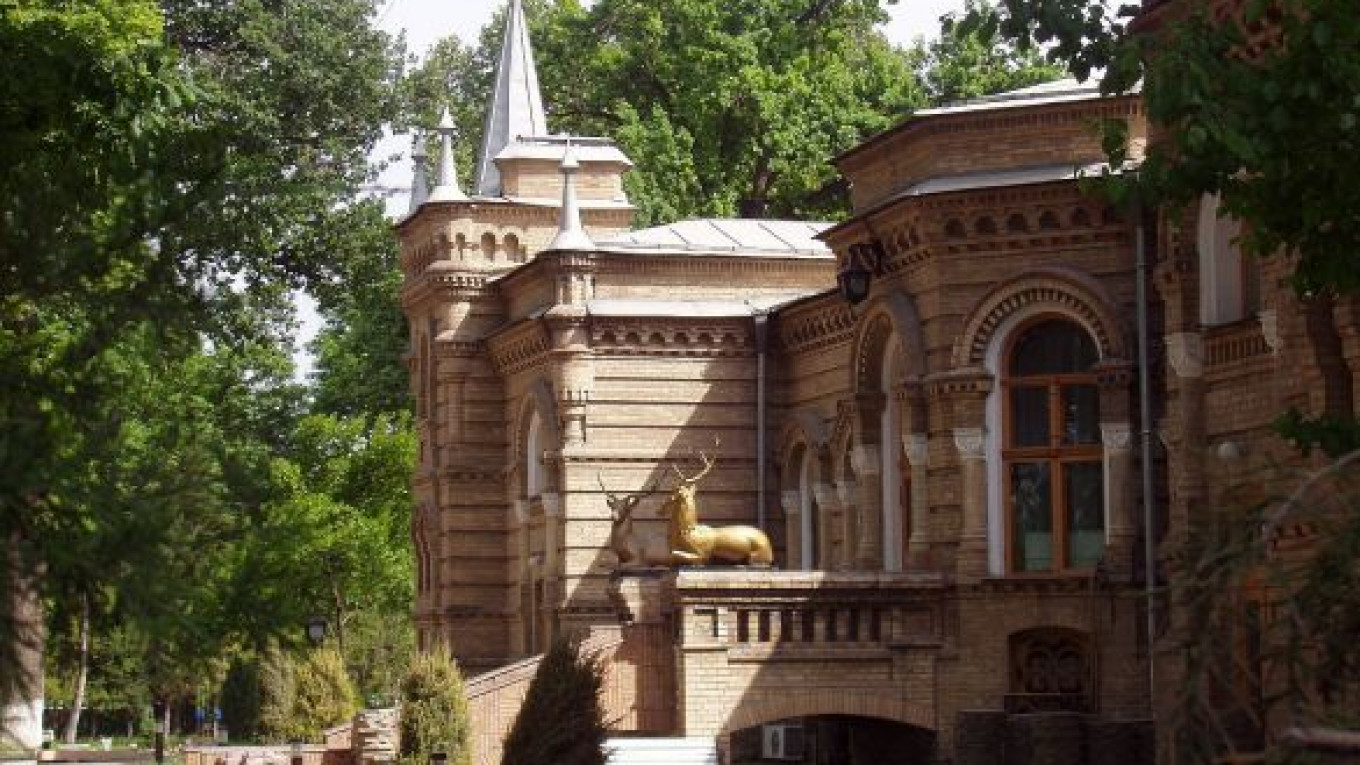TASHKENT — A leading lawmaker in Uzbekistan on Wednesday poured cold water on the prospect of the Central Asian nation joining a Moscow-led trade bloc, saying that relations with Russia would continue to be developed on a one-on-one basis.
Sodik Safayev, head of the Senate’s foreign affairs committee and a former foreign minister, was responding to remarks by a top Uzbek official the day before that appeared to signal a potential shift of course by the ex-Soviet nation.
Senate speaker Ilgizar Sobirov told journalists Tuesday in a possibly unguarded remark after a meeting with his visiting Russian counterpart that Uzbekistan was positively disposed to joining the Customs Union, which currently also comprises Kazakhstan and Belarus.
But Safayev insisted that the subject of Uzbekistan’s accession had not come up in talks between Sobirov and Russian Federation Council speaker Valentina Matviyenko.
“It was not on the agenda. We discussed issues concerning bilateral relations,” Safayev said.
Safayev said there had been no change in Uzbekistan’s previous stance.
Uzbekistan has for many years resisted full participation in economic and military regional alliances, in particular those dominated by Russia.
In mid-2012, Uzbekistan pulled out of the Collective Security Treaty Organization, or CSTO, a military alliance built along the lines of NATO that draws together several post-Soviet states.
Safayev told the Voice of Russia radio station Wednesday that Uzbekistan would remain out of the CSTO, but he said ties with Moscow remained a priority.
“In the sphere of security and military cooperation, the main priority for us is the development of collaboration with Russia, first and foremost,” Safayev said.
Russian Senate speaker Valentina Matviyenko said she had sensed interest from Uzbekistan on further cooperation with the Customs Union.
“Our brothers in Uzbekistan, with whom we are so bonded … are of course interested in working in this market,” she said.
Matviyenko said that any developments ahead would be slow.
“There is no need to hurry, there is no need to pressure anybody,” she said. “Every country is sovereign, it can decide what is beneficial and in the interests of its government and its people.”
Leonid Savin, editor of international affairs magazine Geopolitika, told the Voice of Russia radio station that Uzbekistan’s regime is structured in such a way that Sobirov was unlikely to express himself as he did unless it reflected the government’s position.
“Uzbekistan’s economy is in many ways dependent on Russia as far as exports go. On the other hand, [Russia] could be a good market for the sale of cotton from Uzbekistan,” Savin told Voice of Russia.
A Message from The Moscow Times:
Dear readers,
We are facing unprecedented challenges. Russia's Prosecutor General's Office has designated The Moscow Times as an "undesirable" organization, criminalizing our work and putting our staff at risk of prosecution. This follows our earlier unjust labeling as a "foreign agent."
These actions are direct attempts to silence independent journalism in Russia. The authorities claim our work "discredits the decisions of the Russian leadership." We see things differently: we strive to provide accurate, unbiased reporting on Russia.
We, the journalists of The Moscow Times, refuse to be silenced. But to continue our work, we need your help.
Your support, no matter how small, makes a world of difference. If you can, please support us monthly starting from just $2. It's quick to set up, and every contribution makes a significant impact.
By supporting The Moscow Times, you're defending open, independent journalism in the face of repression. Thank you for standing with us.
Remind me later.


